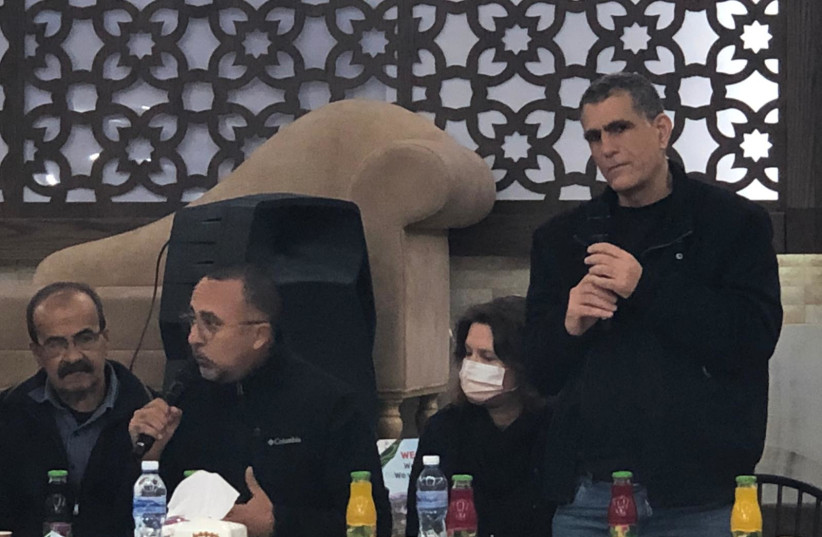Spoiler alert, Prime Minister Naftali Bennett's government won't fall over West Bank settlements.
He knows it and pretty much everyone knows it.
The Left can fume. They can saber-rattle. But they won’t leave his government, not on this issue.
Their refusal to do so is not a statement about their lack of ideology, nor have they sold out on their principles.
Their position was best expressed by MK Mossi Raz, whose left-wing Meretz Party is a coalition member.

Army Radio pressed him on what his stance would be if a Knesset vote were needed to create a new settlement on the West Bank hilltop deep within the Samaria Region of the West Bank – would he topple the government to prevent the construction of a new settlement?
Raz said the issue of a new settlement on the Evyatar hilltop was important enough that it was worth bringing down the government, but only if it truly meant halting that initiative. Therein lies the rub, he explained – it wouldn’t.
“Let say there was a no-confidence vote,” Raz said. “Let’s say I supported it. The government would fall, but Evyatar wouldn’t. I won’t bring down the government only to have Evyatar remain.”
Raz’s meaning was obvious. Left-wing politicians in the Knesset are in the minority, and there is no likelihood that a left-wing coalition could be formed. So anything this government would do in the West Bank, any right-wing government will likely do.
It was this very logic that allowed Bennett’s coalition of parties from the Right, Left and Center of the political map to be formed in the first place. A political version, if you will, of the slogan: “If can’t beat ’em, join ’em.”
The coalition has survived because its members are bound by a number of key points: political expediency, flexibility, belief in democracy’s wide political umbrella, and a deep desire to ensure that Likud Party head Benjamin Netanyahu will not return to power.
What has emerged is a complex set of political cat and mouse games in which each party does its best to advance its agenda without bringing down the house.
Should a critical vote come to pass on the settlements, Bennett is likely to find a compromise position as he did with the family reunification bill, in which he didn't impose coalition discipline for the vote.
But issues that pertain to West Bank settlements and to the Israeli-Palestinian conflict are one of the arenas over which the Left can most relax.
Their agenda is largely in line with that of the Biden administration and the European Union, both of which have pressed Israel on these matters.
Why bring down the government on an issue that the Foreign Ministry and the foreign minister are warning would cause Israel irreparable diplomatic harm?
The US State Department spokesman just this week spoke against settlement activity. And US Ambassador to Israel Tom Nides said that when it came to the Israeli-Palestinian conflict, “We spend enormous time making sure that neither side does stupid things to screw that up.”
The construction of Evyatar, located 26 km. (16 miles) past the pre-1967 lines, is likely one of those things.
The restraint is already obvious. Two large, sensitive Jewish building projects – Givat Hamatos across the Green Line in southern Jerusalem and E1 in the West Bank – that seemed so pressing last year have suddenly evaporated.
Then there are the Abraham Accords, under which Israel agreed to suspend sovereignty plans in exchange for normalized ties with Arab neighbors.
Conflict is destabilizing for the coalition, and emotions are high when it comes to the conflict. But those who fear it could lead to the government’s collapse can breathe easy. If Raz isn’t walking out over settlements, it is likely that no one else is either.
